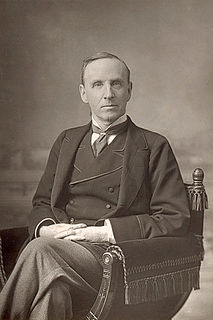A Quote by Joseph Brodsky
As a form of moral insurance, at least, literature is much more dependable than a system of beliefs or a philosophical doctrine. Since there are no laws that can protect us from ourselves, no criminal code is capable of preventing a true crime against literature; though we can condemn the material suppression of literature - the persecution of writers, acts of censorship, the burning of books - we are powerless when it comes to its worst violation: that of not reading the books. For that crime, a person pays with his whole life; if the offender is a nation, it pays with its history.
Quote Topics
Acts
Against
Beliefs
Books
Burning
Capable
Censorship
Code
Condemn
Crime
Dependable
Doctrine
Form
His
History
Insurance
Laws
Least
Life
Literature
Material
Moral
More
Much
Nation
Offender
Ourselves
Pays
Persecution
Person
Philosophical
Powerless
Preventing
Protect
Reading
Since
Suppression
System
Than
Though
True
Us
Violation
Whole
Whole Life
Worst
Writers
Related Quotes
Literature cannot develop between the categories "permitted"—"not permitted"—"this you can and that you can't." Literature that is not the air of its contemporary society, that dares not warn in time against threatening moral and social dangers, such literature does not deserve the name of literature; it is only a facade. Such literature loses the confidence of its own people, and its published works are used as waste paper instead of being read. -Letter to the Fourth National Congress of Soviet Writers
In fact I don't think of literature, or music, or any art form as having a nationality. Where you're born is simply an accident of fate. I don't see why I shouldn't be more interested in say, Dickens, than in an author from Barcelona simply because I wasn't born in the UK. I do not have an ethno-centric view of things, much less of literature. Books hold no passports. There's only one true literary tradition: the human.
It seems to me that literature is giving way a little bit to the immediacy of other diversions, other forms of entertainment. What will it be in fifty years? I don't know. Will there be printed books? Probably, but I'm not sure. There's always going to be literature, though. I believe that. I think literature has a way of getting deep into people and being essential. Literature has its own powers.
An acquaintanceship with the literature of the world may be won by any person who will devote half an hour a day to the careful reading of the best books. The habit of reading good books is one that gives great comfort in all the stages and among all the vicissitudes of life. The man who has learned to love good reading is never alone. His friends are the great ones of human history, and to them he may always go for stimulating and helpful communion. -GQ 71
It does not follow because many books are written by persons born in America that there exists an American literature. Books which imitate or represent the thoughts and life of Europe do not constitute an American literature. Before such can exist, an original idea must animate this nation and fresh currents of life must call into life fresh thoughts along the shore.
Language and, presumably, literature are more ancient and inevitable, more durable than any form of social organization. The revulsion, irony, or indifference often expressed by literature toward the state is essentially the reaction of the permanent-better yet, the infinite-against the temporary, against the finite.






































